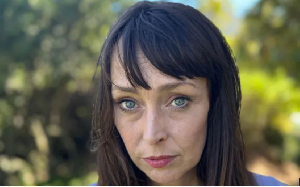Bishop John Peter Sackey, the President of the United Nations' Youth in Ghana, has called on Government to invest in research and production of herbal medicines for effective and quality health care for all.
He has, consequently, suggested the creation of a ministry to give absolute attention to the promotion of herbal medicines.
“This will ensure the cultivation of medicinal plants for herbal medicines in Ghana rather than relying solely on plants in the wild, some of which were becoming extinct,” he said.
In an interview with the Ghana News Agency, Mr Sackey, also the Chief Executive Officer of Ahunyankwa Herbal and Scientific Research Centre at Mankessim in the Central Region, said nature had numerous cures and answers to every health challenge.
He said harnessing the health and socio-economic benefits of herbal drugs was the way to achieving the United Nations Sustainable Development Goal-Three, which sought to ensure healthy lives and improved livelihoods by 2030.
Ghana, as a leading nation with many medicinal plants, stands to benefit from the global herbal medicine market estimated to reach 104 billion dollars by 2024.
“Health is wealth”, he said, and urged the country to rigorously fight against diseases as they interfered with the socio-economic wellbeing of the people.
Bishop Sackey lamented that researchers in herbal medicine were mostly funded by external agencies adding that the absence of patenting their findings, industrial links and technology transfer were huge challenges to herbal medicine development.
He urged scientists, policy makers and health administrators in Africa to prioritise research work on herbal medicines by formulating the appropriate legislation, improving public funding and utilising results of the findings.
“While this would ensure the availability of medicines that will meet our demands, it could also lead to industrial revolution that will improve our economy and healthcare delivery system,” he noted.
Bishop Sackey challenged the Government and stakeholders in plant medicine to step up education and pharmacovigilance to address the risks in the sector including ingestion of untested drugs and wrong dosages and additives, with its attendant health implications.
He said Ghana had become a reference point in the Sub-region for researching and integrating plant medicine into healthcare and there was the need to iron out the bottlenecks to improve its contribution to healthcare delivery.
Touching on his traditional herbal healing prowess, Bishop Sackey said his Herbal Centre could boast of its discovery of a medicine, which could cure eye diseases like trachoma and glaucoma, which medical doctors say had no cure.
He advised the public to avoid activities that could be injurious to the eye and take good care of their health through proper dieting and good sexual lifestyles.
General News of Sunday, 5 July 2020
Source: GNA













